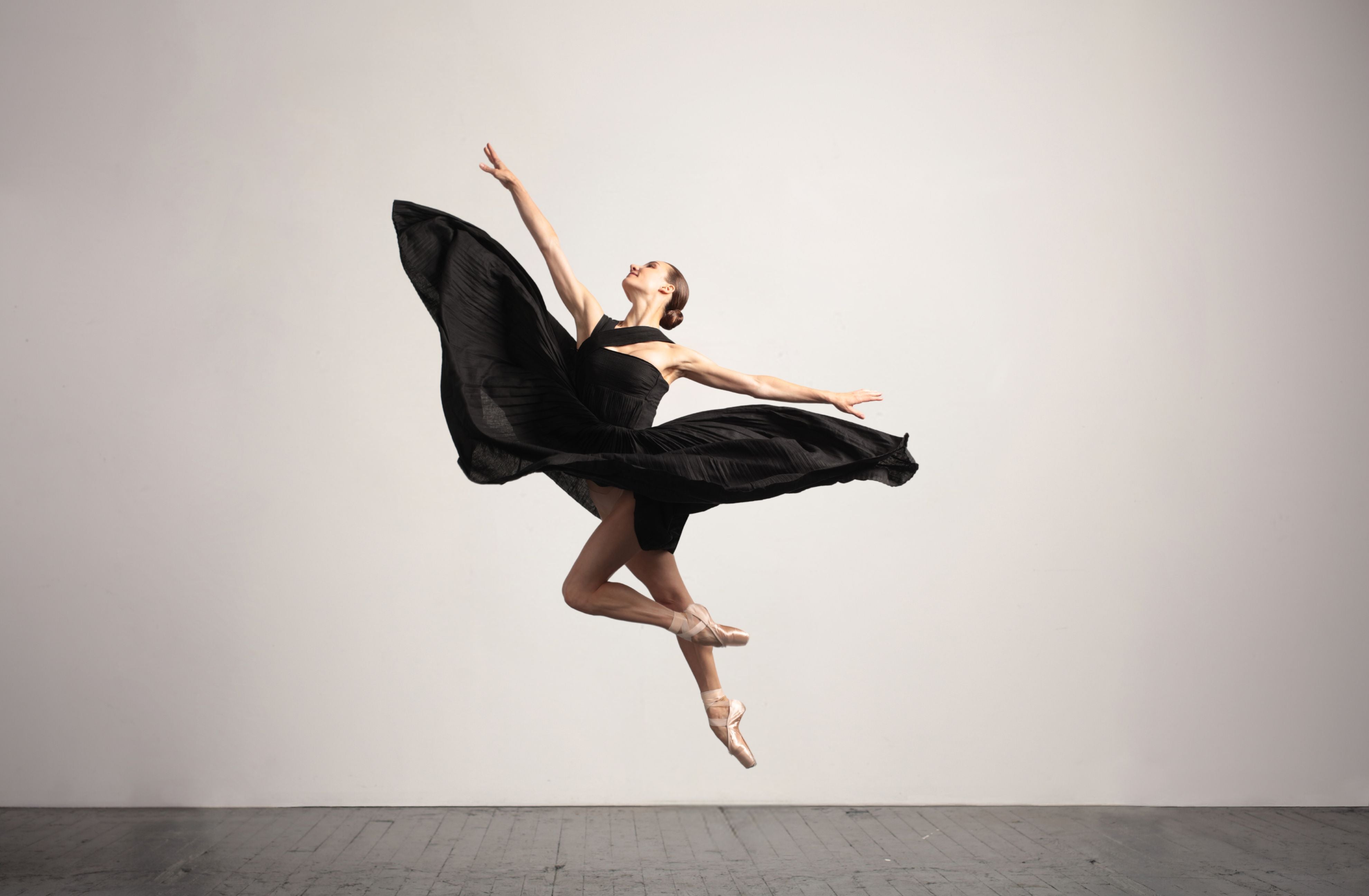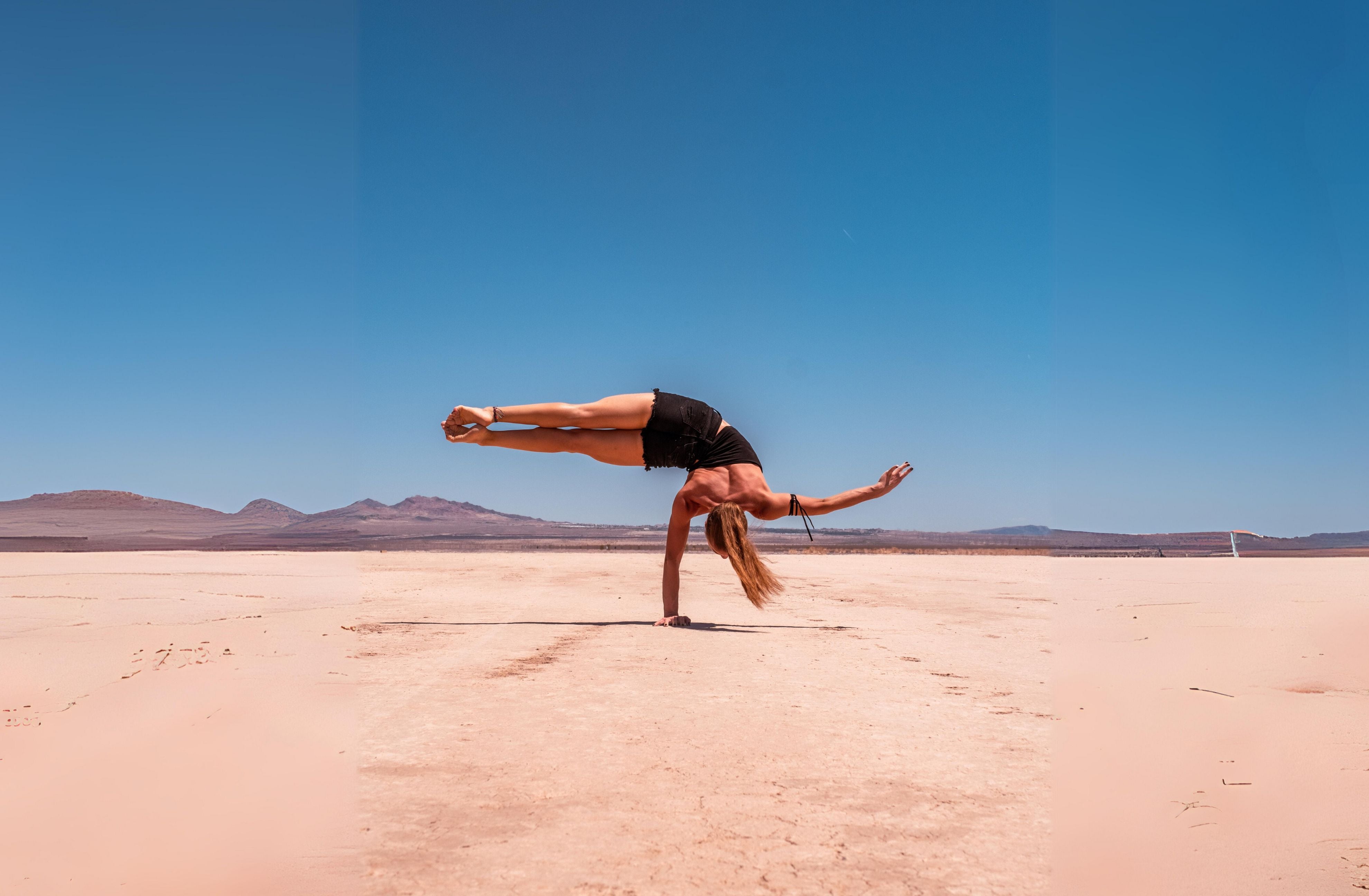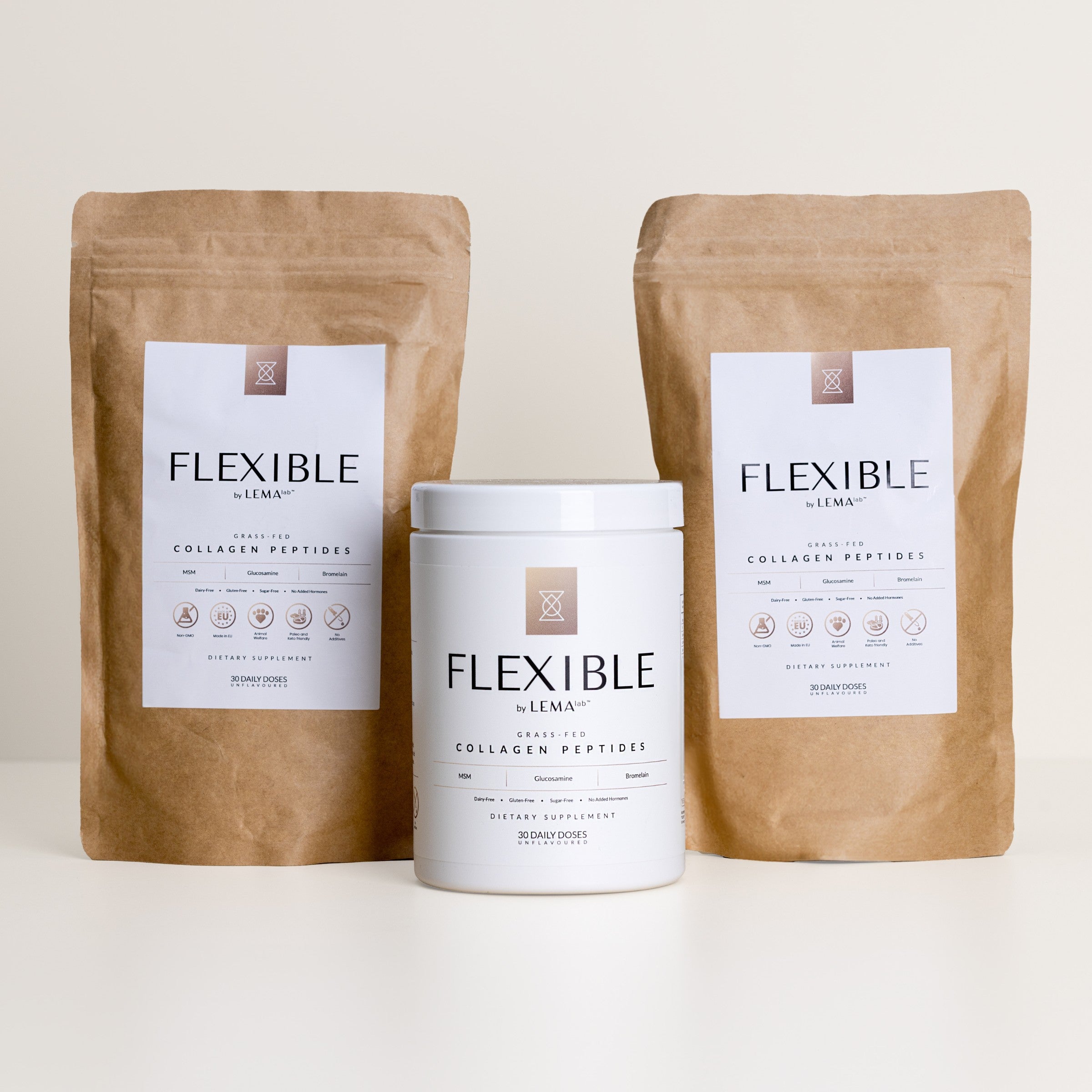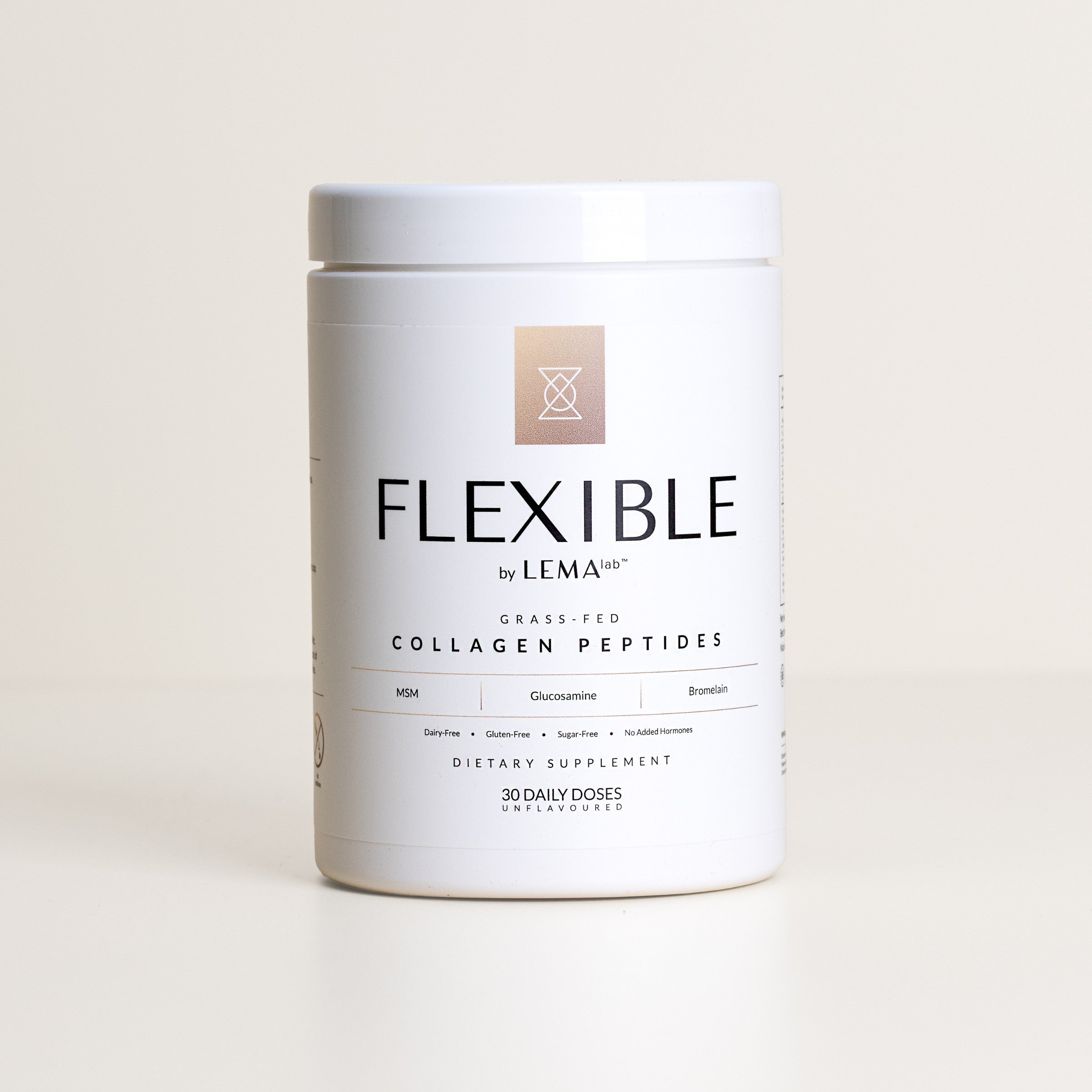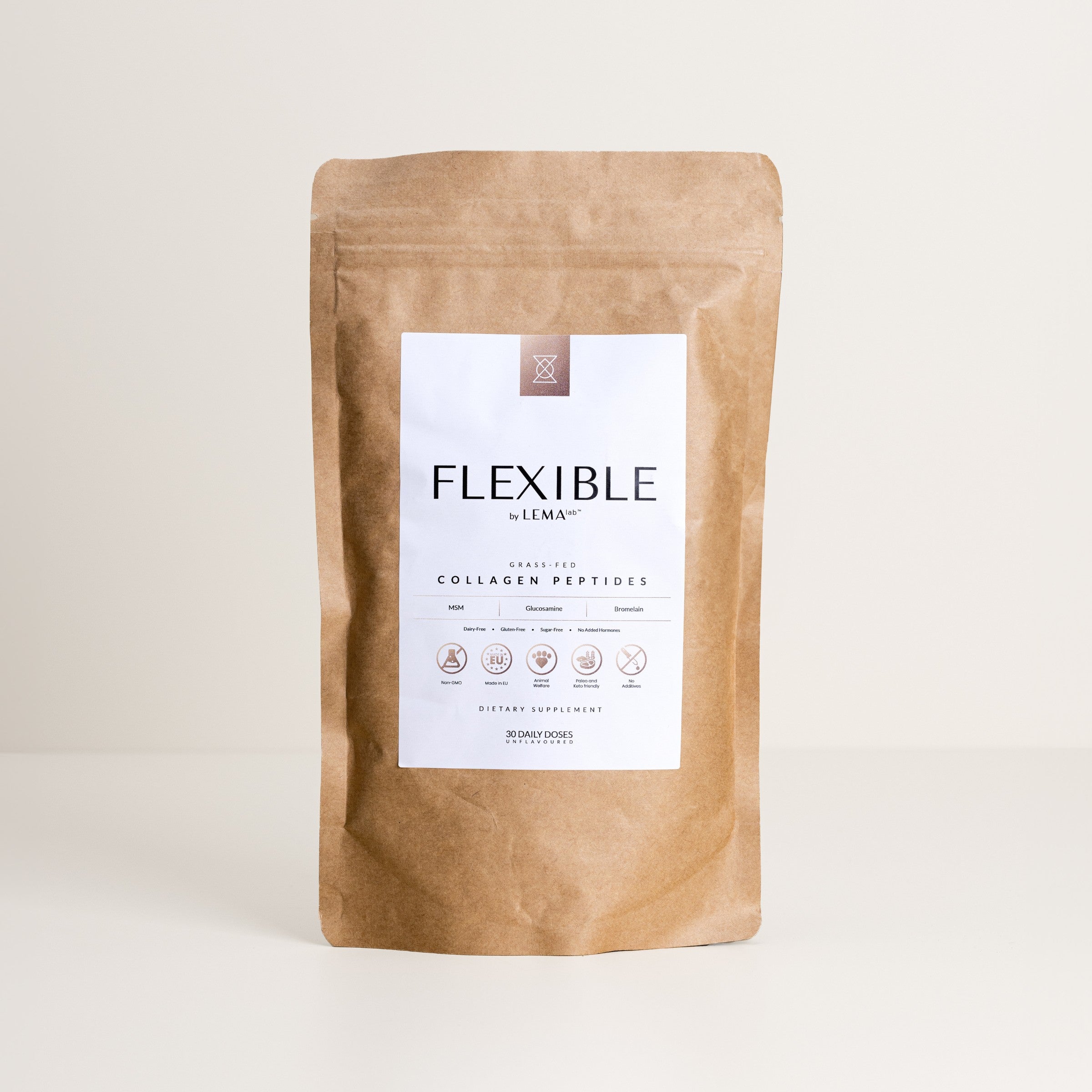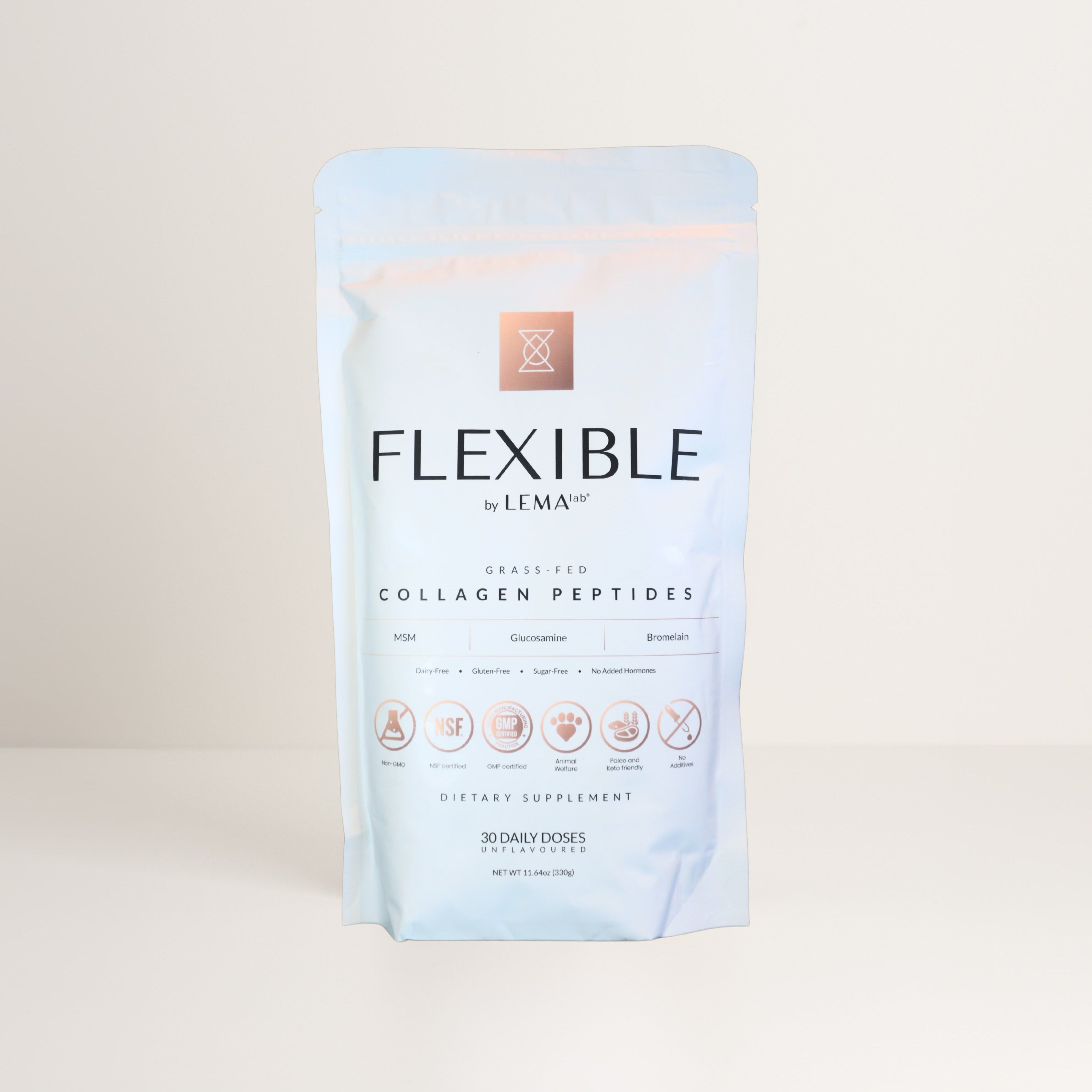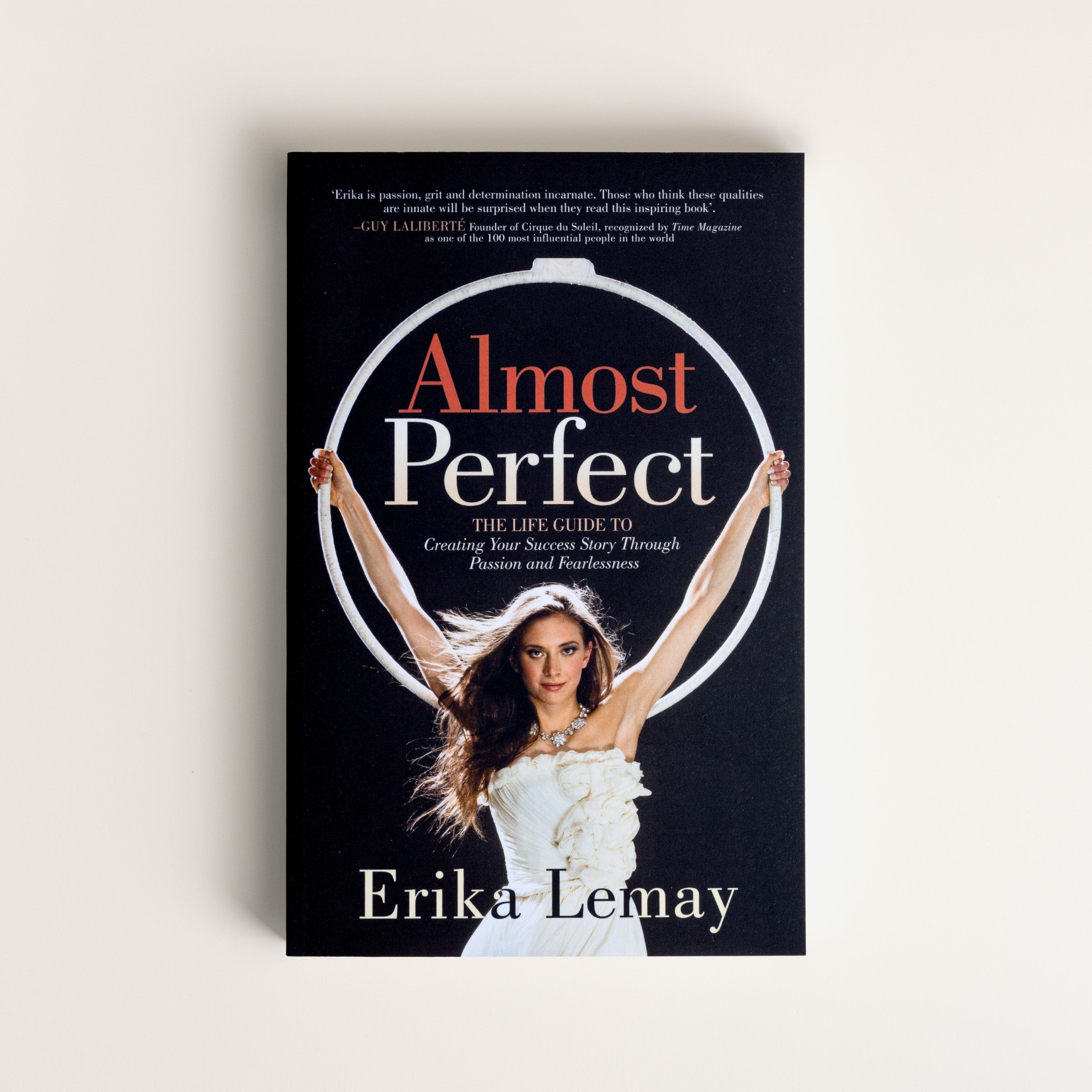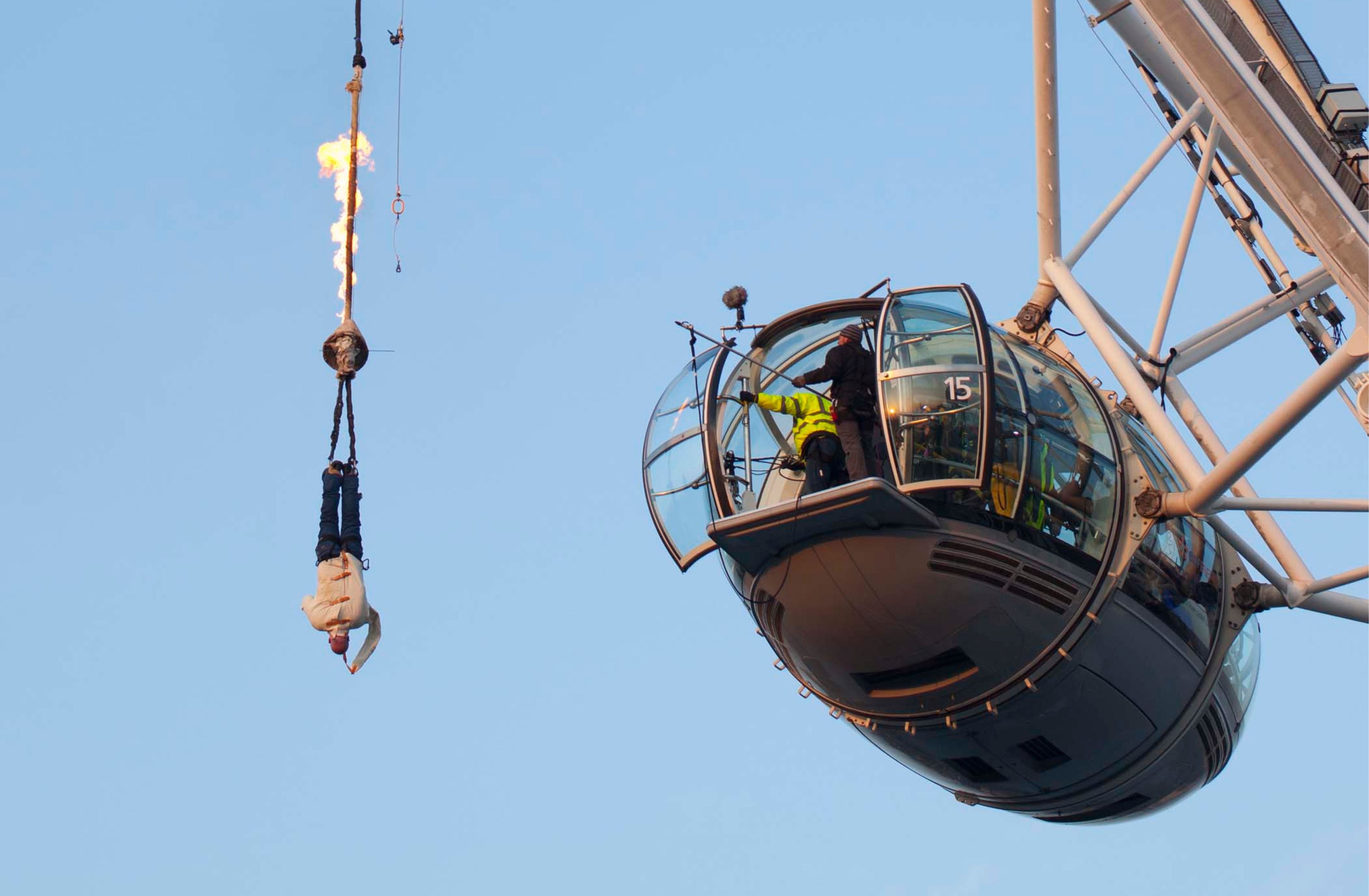
JONATHAN GOODWIN
‘I've always thought someone needed to do a PR job on hypnosis and change the narrative to show its true potential. After my accident, I thought maybe that someone was me.’

Jonathan Goodwin is a Welsh hypnotherapist and former stunt performer. He has been called ‘the closest thing we can boast to a real-life superhero’ and ‘the world’s greatest theatrical stunt performer.’ Jonathan has been hanged, buried alive, locked in a box while covered in 200,000 bees, attacked by sharks, bitten by rattlesnakes, and hung from his toes from helicopters. Goodwin has played Broadway, London’s West End, Sydney Opera House, and Radio City Music Hall and performed all over the world.
In 2021, Jonathan suffered an accident during a stunt rehearsal for American TV, leaving him paralysed from the waist down. Now retired from stunt performing, he focuses on writing, presenting, hypnotherapy, and being a role model (pun intended) for both disabled and able-bodied people. He is the founder of Project Rewire, an online platform for hypnotherapists, and he is also an ambassador for the Spinal Injuries Association (SIA).
How does one start a career in stunt performance?
I entered the world of stunt performance through magic. I learned to be a magician when I was seven, and I loved it and everything related to it. Magic is closely linked with the art of escaping—everyone has heard of Houdini's acts. I was successful in magic, but I knew that to stand out, I needed to find my own niche. I saw an opportunity in escape acts, as no one had really updated the concept since Houdini. Most people were replicating what he had done, so I decided to create my own version, which proved successful. From there, I continued to add skills and expand my repertoire. I had a few mentors who advised me, but I was mostly self-taught.
Can adrenaline become an addiction for extreme performers, or is it on the other end that you're becoming impermeable to fear?
It's closer to the latter, but I think that's something I've learned. It's not a natural thing for me. I don’t really consider myself to be an adrenaline junkie. I don't crave that.
I know a lot of people in the extreme world do crave it—they need to be doing that kind of stuff, whether they're being filmed or not. That's not me. For me, it's about the creation, the manifestation of an idea.
Having an idea for something that maybe nobody has seen before and then working out how to do it. So, I'm naturally more of a creative than an adrenaline junkie.
Does that mean you have the most fun in the preparation process for your acts?
Yeah, a lot of the time, but it depends on what it is. I did a lot of theatre; I toured for about six years in a Broadway show that went around the world. I loved the immediacy of the audience's response. And I do enjoy the live, in-the-moment aspect of the actual stunt, but for me, it's more about coming up with the stunt, making it work, and collaborating with my stunt team—that's the fun part. When it works for the first time, it's an incredible feeling.

Can you describe how meticulous the preparation process for your stunts is?
Stunt performing is all about creating an illusion of danger that feels incredibly real, almost as if it's on the verge of spiralling out of control. It's about drawing the audience into a space where they anticipate something going awry—a careful illusion similar to my days as a magician, where we craft experiences to prompt specific reactions rather than embracing recklessness, which would be the easier route.
This meticulous illusion requires careful planning, especially for stunts like one of my last ones before retirement—hanging 75 feet (22.86 metres) in the air by my teeth from a burning rope. Whether it's a zip line stunt or another elaborate setup, there are countless moving pieces, each with its own potential pitfalls. As a stunt performer, it's my responsibility to meticulously identify and address every conceivable risk, ensuring that the desired outcome is the one that prevails. It definitely demands precision and collaboration with the best in the industry.
How much dedication does it take to create your stunts?
It requires a great deal of dedication. In other artistic fields, such as aerial arts, there's a known set of disciplines to explore. However, in my line of work, it's about playing with jeopardy and danger—a broad and varied landscape.
During my time working on a series for the BBC, I found it interesting how different viewers perceived the scariest moments. Each person has their unique perspective. This diversity meant there was never a typical day or journey in preparing for a stunt. Sometimes, I'd develop something entirely new for the show and never do it again. In this sense, it is a different kind of process.
Could you describe the significant hiccup in your life in 2021 to help us understand what led you to become a hypnotherapist?
During a television stunt rehearsal for an upcoming performance, I found myself hanging upside down from a crane, 30 feet (9.14 metres) in the air, restrained in a straightjacket, with two cars rigged with explosives nearby. My task was to escape and release into an airbag before the vehicles collided and exploded. However, it didn't go to plan. When I went to pull the release, I didn't drop, so the cars swung, collided with me, and exploded. And then I fell, but by that time, I wasn't over the airbag anymore. So I fell 30 feet headfirst to the ground. It resulted in severe injuries, including broken legs, third-degree burns, kidney injury, punctured lung, broken ribs and shoulders, and a complete spinal injury.
Upon hearing the surgeon's bleak prognosis that I would never walk again, I couldn't help but feel it was an unfair thing to say, since he had never met me before. This accident marked the end of my career as a performer, leading to a challenging period of finding a new identity after months of hospitalisation and rehabilitation.
In my previous life, I dabbled in television production, collaborating with Darren Brown, who is quite famous in the UK. We were flatmates for a while, and that's how I was introduced to the world of hypnosis. But it struck me that hypnosis is truly a panacea that can help many people with the challenges they face. Unfortunately, it's been commandeered by performers who want to use it to make themselves look like they've got magic powers. I've always thought someone needed to do a PR job on hypnosis and change the narrative to show its true potential. After my accident, I thought maybe that someone was me.
You met your wife around the time of the accident. Could you share the remarkable way in which it all happened?
I fell deeply in love and found my soulmate just before the accident. At that time, I was single and living in Vegas, and Amanda, an actor, entered my life. We had known each other through social media but had only exchanged casual messages. Then, for some reason, we started talking more deeply and exchanged numbers. Our first phone call, in early August 2021, lasted seven hours, and subsequent calls were equally lengthy.
Throughout August, we spent five to seven hours on the phone daily. Eventually, I flew to Vienna, where she was working, and we met for the first time. We got engaged within 30 minutes of meeting each other.
After spending a weekend together, I returned to Vegas, then flew back to London to see her again. We met each other’s families. I went back to Vegas, then to Vienna to meet her once more. Instead of returning to Vegas, I flew directly to Atlanta, where I had my accident.
Given that we had only spent about a week cumulatively together before the accident, I assumed I would lose her along with everything else I had just lost. It wasn't fair of me to ask her to honour her promise to me. So, I sent her a little voice note to give her an out-of-jail-free card.
I immediately saw she was replying. I got the sort of three dots of doom on the phone: ‘The only thing we need to concern ourselves with is planning a wedding,’ she wrote.
Going back to hypnotherapy, why did you choose to be a therapist?
After the accident, I struggled through a lot, but psychologically, I was okay. I have spent a significant amount of time learning how to cope with extreme situations. I think many people were surprised at how I handled what happened to me.
After that, plenty of people encouraged me to use my experience to assist others. However, it felt challenging because it seemed like teaching someone to be me. I realised that I didn't undergo a deliberate mental process in handling the situation; that was just how I responded. Nonetheless, I felt compelled to help and recognised an opportunity for a significant shift towards something beyond my own needs, contrary to my previous career, which could be considered self-indulgent.

Have you been using hypnosis for yourself during your career, for general stress management, or even for your recovery?
Yes, I use hypnosis for myself, but there are many misconceptions about it, even among hypnotists. Hypnosis isn't mysterious or sexy; it's just learning in a way that we're not particularly familiar with, despite the fact that it happens to us naturally all the time. We learn intentionally, like tying shoes, and unintentionally, developing fears from heightened emotions, for example.
You can't consciously unlearn something. Hypnosis allows a shift in the conscious mind for unwanted fears or habits, which normally inhibits new learning. In those moments of heightened emotion, like fear, anger, or even love, our conscious mind is suppressed, and then we're vulnerable to learn things that are not helpful to us. So learning is somehow about that shift of your conscious mind to open the gateway to your unconscious mind to store the information. Hypnosis is basically just a formalised way of doing that same process. Through it, by engaging the conscious mind elsewhere, like focusing on something, suggestions can reach the unconscious mind directly.
Is hypnosis similar to meditation in any way?
Yes, hypnosis is similar to meditation in that both involve turning off awareness. However, the difference is that meditation is like sitting alone in a classroom, while hypnosis is like sitting in a classroom with a teacher.
The unconscious mind doesn't handle nuance or complicated ideas well. Techniques like allegory and metaphor work effectively because they keep things simple. Often, people want to tackle multiple issues at once, but that's not effective. We need to address them one at a time in different sessions. I always say your conscious mind is like a scalpel and your unconscious mind like a sledgehammer. It’s not complicated, but it is powerful and controls everything we do.
Could you describe a typical session and what one should expect?
I conduct sessions over Zoom, requiring a quiet, undisturbed place with a good internet connection. We start by discussing what you're experiencing and the ‘unconscious controls’ you want to change, like unwanted feelings, emotions, or behaviours.
Hypnosis differs from psychotherapy because we focus on altering current symptoms, not discussing past traumas. I explain how hypnosis works because it's something you do to yourself, not something I’m doing to you. You are driving the car and I’m just in the passenger seat giving you instructions.
The actual hypnosis part lasts about 15-20 minutes and is very relaxing. A client described it recently as ‘going to the spa without getting wet’.
After a session, can people use the learned tools by themselves?
Yes, it's possible. Many people use self-hypnosis techniques, like listening to audio recordings, which can be helpful. However, one-on-one therapy offers an immediacy that's hard to replace.
I teach clients a simple technique: stare at the back of your hand and imagine a word representing something you want to be free of, like ‘anxiety’. Visualise it clearly, even the font that it is written in. Then, turn your hand over so that it's just sitting on your lap and focus on the back of your hand, asking your unconscious mind to lift it. As you concentrate, your hand will feel lighter and start to rise.
When your hand is near your head, ask your unconscious mind to stick it to your head. Test this to see if it's stuck. You can ask it to do that repeatedly, and eventually, you'll get to a place where you can test it and be like, ‘Oh, yeah, that's actually stuck.’ Finally, ask your unconscious mind to unstick your hand, but only as soon as this thing that you've written on your hand will evaporate. This release is powerful and palpable.
Do you also practise meditation?
Yes, I do practise meditation myself. I started by timing myself to see how long I could quiet my mind or focus on one thing, first for 3 minutes, for example, then I would say 'let's try it for four minutes'. Gradually, it just became a skill I developed. Essentially, my meditation involves a lot of quieting the mind and embracing stillness, which, to me, is the essence of meditation itself.
After how many sessions of hypnotherapy can one start to see or feel results?
Immediately. I have an excellent single-session resolution record. Most people I see only need one session to achieve the desired shift. Occasionally, if someone has multiple concerns initially, I might plan for more sessions. Any hypnotist who claims a set number of sessions for results is likely not genuine because everyone responds differently. I encourage clients to gauge their experience after one session and return if they feel they need more. We're conditioned to believe therapy requires prolonged effort but learning with hypnosis can be rapid and effective. Just as we can learn quickly, we can unlearn or shift behaviours swiftly as well.

What is fear to you?
Fear used to be a part of my life, but I taught myself not to feel it. It was a process of repetition, facing my fears repeatedly until they no longer held power over me. Now, fear to me is about being present, rooted in a lack of knowledge and a projection into the future. For example, seeing a toddler walking alone near a busy street can be terrifying. Still, you can do that same walk, and it's okay because with knowledge and experience, that fear diminishes. Understanding our abilities and the circumstances alleviates fear. Living in the moment is key; the only moment we truly have is now. So, if everything is okay right now, there's no need to worry about the past or the future.
What strategies do you suggest for managing the mind during difficult times?
I believe in the concept of chunking—breaking down challenges into manageable parts. By focusing on completing each step one at a time, you avoid feeling overwhelmed and can progress steadily. Once you complete the first one, you feel you can handle the next step. Additionally, increasing your knowledge about the situation can reduce fear and anxiety. The more you learn, the less intimidating the challenge becomes.
How does one identify a legitimate hypnotherapist?
Identifying a legitimate hypnotherapist goes beyond mere certification; one of the problems is that there is no governing body almost anywhere in the world for the therapy, which is why you can encounter really bad practitioners. So, be cautious of therapists who demand frequent or weekly sessions to achieve results. Additionally, you could ask them to define hypnotherapy, and if their explanation is nowhere close to what I previously explained, that's not the one.
